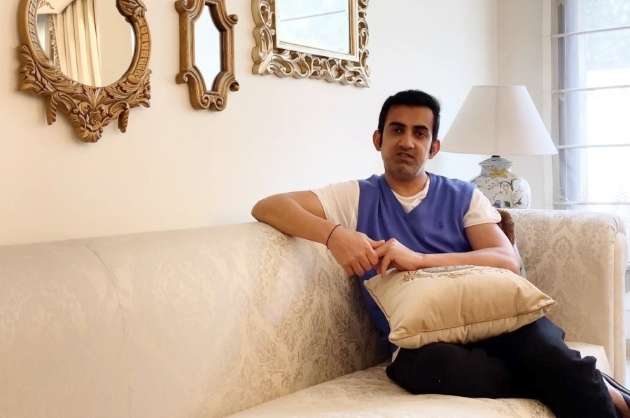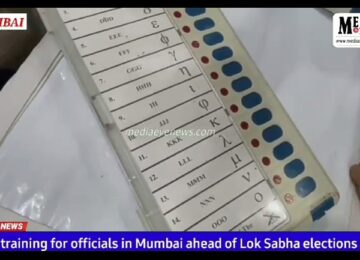Ten years ago on April 2nd, Gautam Gambhir had played one of the best knocks by an Indian batsman in a World Cup, scoring 97 in the final against Sri Lanka to help India win the second title after 28 years.
Riding on his 97, which helped India recover from the loss of two early wickets, and an unbeaten 91 by skipper Mahendra Singh Dhoni, India chased down 274 to win the World Cup in front a jubilant home crowd in Mumbai.
The gritty former opening batsman, who also served as India captain and scored a crucial 75 in the World T20 final against Pakistan in 2007 to help India win the title, was on Friday gearing up for canvassing for his party, the BJP, for the upcoming state elections in Bengal.
A day before his departure, Gambhir spoke to IANS on the 2011 World Cup win and also what the team has lacked in the recent ICC tournaments.
Excerpts:
Q: How do you remember the day of the World Cup final?
A: I don't actually look back. I am a guy who believes there is no point looking back at things. It is about looking forward on what you want to achieve. I think Indian cricket needs to look forward, beyond 2011. Even on that particular day I said the same thing — that the job was done, it was meant to be done. It was about looking ahead. It is exactly the same even today.
Q: Do you think that moment changed Indian cricket?
A: Obviously, by winning the World Cup, you make your country proud. You make everyone happy. But whether that moment changed Indian cricket? Well, I don't think so. I think every win you earn for your country changes the face of Indian cricket. So, it is not one particular tournament. There are so many people who are still talking about 1983; there are people who talk about 2007 and 2011. But I don't think those moments alone changed Indian cricket. I think Indian cricket is probably about winning as many games and as many series as possible, and that will probably change Indian cricket, not one or two particular tournaments.
Q: What was the conversation with Virat (Kohli), when he joined you in that final after India lost Sehwag and Tendulkar early (31/2) chasing 274?
A: Again the same thing. I don't look back at what has happened. It (early loss of wickets) really didn't matter to me then. The target that we needed to achieve was what we zeroed in on. So, we were not looking at what we lost, but we were looking at where we needed to reach. And how we can achieve the target. If I didn't have the belief of winning the World Cup (in the face of early loss of wickets), then I might as well not have been part of the World Cup team. For me, it didn't really matter if we lost two early wickets. It was all about winning the game for the team.
Q: In your opinion, was the 2011 team India's best-ever?
A: Absolutely not. I don't believe in these statements — when people or ex-cricketers turn up and say, this is the best Indian team or that is the best Indian team. Neither the 1983 team was the best Indian team, nor the 2007 nor 2011. Neither is this current one, because you can never compare eras. All you can do is probably put your best team in the park and try and win as many games as possible. That is what I believe. I don't believe in comparisons. You can never compare any two teams. I don't know why these ex-cricketers end up giving these statements. I would not say that the 2011 World Cup-winning team was the best Indian team that was put on the park. I don't believe in comparing teams.
Q: In the recent past, especially since the 2013 Champions Trophy success, the Indian team has often gone down in crunch games in ICC tournaments – 2015 and 2019 ODI World Cup semis, the 2017 Champions Trophy final or the 2016 T20 World Cup semifinal. Where do you think these Indian teams lacked?
A: Probably mental toughness, to be honest. You can play as many bilateral series as you want. You can win as many bilateral series as you can. You can win league stage games. But come the crunch moments, you know there is no opportunity of making a mistake and if you make a mistake, there is no way you can rectify it. Then, obviously, it comes down to mental skills. You will always have technical skills (playing at this level and doing so well). But do you have the mental toughness, the mental courage to actually play those moments to the best of your ability? That is what defines you, not only as a team but also as individuals. That will separate you from being a good to a very, very good player, because that is all that matters. Come the crunch moments — that is when you should deliver for the team and for the country. Eventually it comes down to mental toughness.
Q: So you are saying these Indians teams lacked mental toughness in key games?
A: I don't know whether India lacked it. But I believe that if you don't win those important games, those crunch games, then you probably had the skill and that is why you reached that stage. If you didn't have the skill, you would not have reached the semifinals. And since you had skill, it is probably only mental toughness that was lacking. There are only two things that win you a game of cricket. One is skill and second is mental toughness or the mental ability to handle pressure. Whether it is quarterfinal or semifinal, it is about how you handle the pressure. Whoever handles the pressure, ends up coming out on top. So, probably India would have lacked the ability to handle pressure — i.e. mental side, because I don't think India lacked anything from the skill point of view. If they were lacking in skills, they wouldn't have reached the semifinals.
Q: There are three World Cups lined up for the current bunch of India players – T20 World Cups this year and in 2022, and the 50-over World Cup in 2023..
A: These guys are going to be very privileged that they will get to play three World Cups in a row, because a lot of players have never played three successive World Cups. In fact, no one has ever played three World Cups in a row (in three successive years). So (my advice is) just go out there and win the World Cup, don't put much pressure that you have to go out there and win it. Try and play to the best of your ability and try and handle the crunch games better. Get the platform and the occasion out of your mind, because ultimately, it is not the occasion or the platform. It is the contest between bat and ball that matters, whether it is a World Cup final, a league game or a Ranji Trophy match. The platform is not the criteria. The criterion is whether you can win the contest between bat and ball. If you can win that contest, you will make things easier for yourself.
Q: Keep the occasion out of system…
A: They need to get the platform and the occasion out of their minds, because if they keep thinking that it is the World Cup or you have to win the World Cup and that it is now or never, I don't think these things ever work. I think they've got to remember that the contest is between bat and ball. Try and win as many contests. The more contests you win, the more chances you get to win the World Cup.
Q: You've been quoted as saying that the 2011 World Cup win was more than just the six (that MS Dhoni hit to win the final). It seems to have got a lot more hype than anything else from that final…
A: For me, 20 people sitting in the dressing room won the World Cup for the country. In fact, one billion people won the World Cup for the country. Not that particular six (by Dhoni).
By Khurram Habib




























